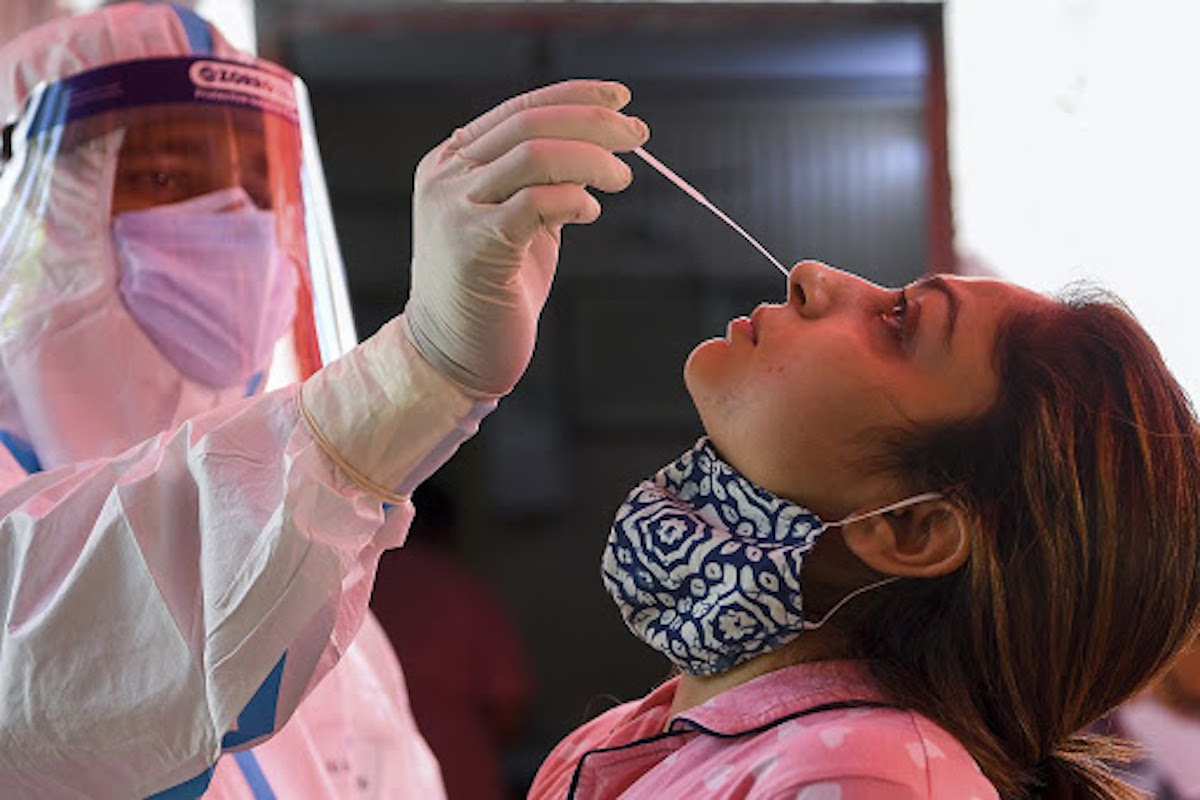Trump announces US withdrawal from World Health Organisation
Trump has long been critical of the WHO, and his administration formally withdrew from the organisation in July 2020 as the Covid-19 pandemic continued to spread.
Markers of brain injury continue to be present in the blood many months after Covid-19 infection, despite inflammation blood tests being normal, finds a study.

A medical worker collects a swab sample from a woman for a RT-PCR Covid-19 Coronavirus test. (Photo by Prakash SINGH / AFP)
Markers of brain injury continue to be present in the blood many months after Covid-19 infection, despite inflammation blood tests being normal, finds a study.
The study, published in the journal Nature Communications, identified ongoing brain injury markers in those who developed neurological complications during Covid-19.
Advertisement
During the Covid-19 pandemic it became apparent that neurological complications were occurring in a significant proportion of hospitalised patients and even in those with mild Covid-19 infection.
Advertisement
While some neurological ‘symptoms’ were often mild {headache and muscle aches (myalgia)}, it became clear that more significant and potentially life-changing new neurological ‘complications’ were occurring, including encephalitis (brain inflammation), seizures, and stroke, said researchers from the University of Liverpool in the UK.
The team analysed samples from over 800 patients hospitalised with Covid-19 from across England and Wales, half of whom with new neurological conditions.
The researchers measured brain injury markers, serum inflammatory proteins (cytokines), antibodies, and brain (neuroglial) injury proteins.
The analysis of these, shows that during the acute phase (when symptoms are developing quickly) there is production of key inflammatory proteins and brain injury markers but surprisingly on-going robust biomarker evidence of brain (neuroglial) injury in Covid even months after discharge from hospital.
Crucially, this was more prominent in patients with neurological dysfunction in the acute phase of the illness, and continued in the recovery phase in patients who had suffered acute neurological complications.
The inflammatory markers are associated with abnormal immune responses in the acute phase of the disease, and the researchers suggest that these may represent targets for therapy for Covid-19 and other infections which cause acute brain dysfunction.
“Our study shows that markers of brain injury are present in the blood months after Covid-19, and particularly in those who have had a Covid-19-induced brain complication (e.g. inflammation, or stroke), despite resolution of the inflammatory response in the blood. This suggests the possibility of ongoing inflammation and injury inside the brain itself which may not be detected by blood tests for inflammation,” said Professor Benedict Michael, principal investigator and director of the University of Liverpool, UK.
“By bringing together immunology, neurology and infection research, we were able to reveal a number of biomarkers that were associated with the neurological complications of Covid-19. This work may help set the stage for elucidating the possible underlying mechanisms of these complications,” added Professor Leonie Taams, from King’s College London.
Advertisement